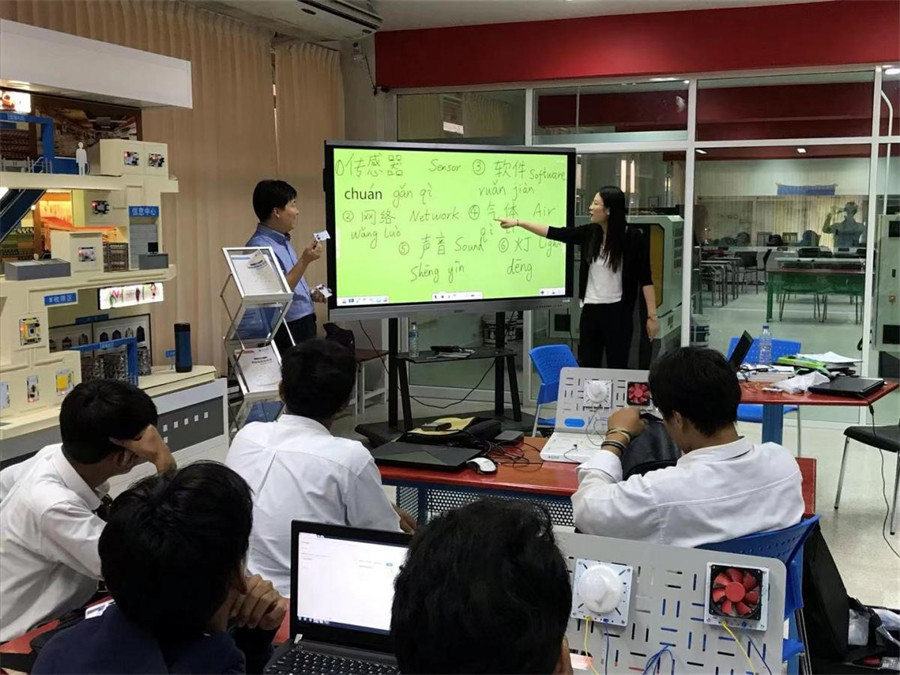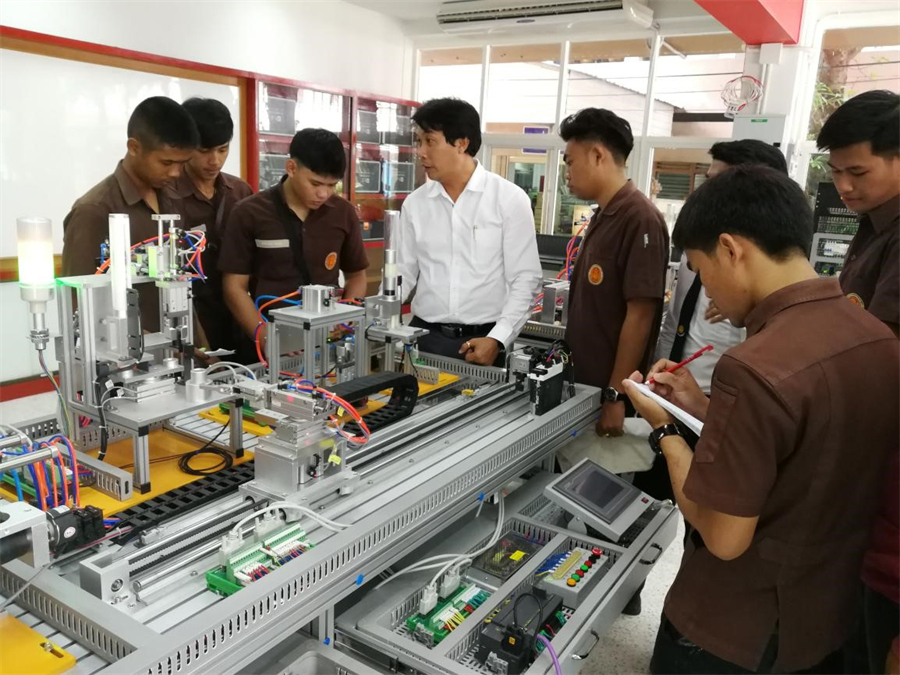Chinese vocational training program welcomed in Thailand
Natawut is a Thai employee of a plant under a Chinese refrigeration equipment supplier located in the Thai-Chinese Rayong Industrial Zone in the core area of Thailand's Eastern Economic Corridor over 100 kilometers southeast of Bangkok.
The air condition parts and other products manufactured by the plant are sold to not only Thai customers, but also countries and regions in other ASEAN countries.
Natawut, from central Thailand, speaks fluent Chinese and has a Chinese name Wang Dashan. It was under the assistance from the Luban Workshop, a vocational training program jointly implemented by China and Thailand, that he turned from an impoverished student to an engineer and became a department manager of the Chinese refrigeration equipment supplier.

Thai students learn technologies of Internet of Things in the Luban Workshop at Ayutthaya Technical College, Thailand, Feb. 20, 2023. [People's Daily/Sun Guangyong]
In March 2016, the world's first Luban Workshop was jointly unveiled by China's Tianjin Bohai Vocational Technology College and Thailand's Ayutthaya Technical College. It marked that China started sharing vocational education resources with other countries.
This first-ever Luban Workshop combines academic education and vocational training, uses advanced teaching equipment and offers courses in both Chinese and Thai languages. It has established 15 practice areas where students can learn to operate various types of machines.
Natawut was enrolled in the Thai Luban Workshop the same year, where he gradually learned that Luban represents not merely a name of a great Chinese craftsman, but the pursuit for craftsmanship and excellence.
Over the past seven years, the students of the Luban Workshop at Ayutthaya Technical College have delivered remarkable performance, winning a number of vocational competitions at the national level and even the ASEAN-level.
"They are proud of being students of the Luban Workshop," said Mayuree Sriraboot, principal of Ayutthaya Technical College, adding that the workshop not only improves Thai students' language and vocational skills, but also offers them with broad development opportunities.
"Through learning in the workshop, they have been acquainted with Chinese technologies, products and techniques, and developed skills that match the requirement of Thai enterprises. They are competitive in the job market," the principal said.
Mechatronics, which Natawut majored in, enjoys broad application in industry. After graduating from the Luban Workshop, he worked as an assistant engineer.

Thai students of the Luban Workshop learn to operate automation equipment. [People's Daily/Sun Guangyong]
"In the Luban Workshop, I learned both knowledge and operational skills. Students there need to learn the operation of machines, solve practical problems and acquire vocational skills," Natawut told People's Daily.
Thanks to the skills and experiences he gained from the vocational training program, Natawut got many job offers. Finally he chose a Chinese enterprise in the Thai-Chinese Rayong Industrial Zone.
"It is in the Eastern Economic Corridor, the future of Thailand's economic development," he explained.
It is learned that since the Luban Workshop at Ayutthaya Technical College was established in 2016, it has trained 1,227 local students and sent 301 of them to China for vocational education.
Besides, the Luban Workshop also accepts students and teachers from vocational schools in other ASEAN countries and has trained a total of 12,000 people from these countries.
The Thai Luban Workshop improves Thailand's vocational training, further enhances Thai-China education cooperation, and builds closer friendship between the two peoples, said Tanu Vongjinda, secretary-general of the Thai Vocational Education Commission.
He hopes the Luban Workshop can train more professionals, drive technical innovation and upgrade, and make a contribution to the Thai government's 20-Year Strategy, a project also known as Thailand 4.0.
























